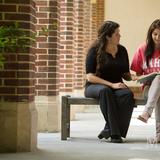- The Ellis Hospital School of Nursing prepares men and women for licensure as a registered professional nurse. The program is registered by the New York State Education Department jointly with Schenectady County Community College. This hospital-based school awards an associate in science degree in nursing conferred by the Ellis Hospital Board of Trustees.
School Highlights
Belanger School of Nursing serves 142 students (26% of students are full-time).
The college's student:teacher ratio of 7:1 is lower than the state community college average of 13:1.
Minority enrollment is 85% of the student body (majority Black and Asian), which is more than the state average of 62%.
Quick Stats (2025)
- Enrollment: 142 students
- Private-state tuition: $9,261
- Acceptance Rate: 25%
- Student:teacher ratio: 7:1
- Minority enrollment: 85%
- Source: Integrated Postsecondary Education Data System (IPEDS)
Top Rankings
Belanger School of Nursing ranks among the top 20% of public schools in New York for:
Category
Attribute
Selectivity
Diversity
School Resources
Completion Rates
School Overview
The teacher population of 21 teachers has stayed relatively flat over five years.
Belanger School of Nursing
(NY) Community College Avg.
Carnegie Classification
Special Focus Two-Year: Health Professions
Baccalaureate/Associate's Colleges: Mixed Baccalaureate/Associate's
Institution Level
At least 2 but less than 4 years
At least 2 but less than 4 years
Institution Control
Private not-for-profit
Private not-for-profit
Total Faculty
21 staff
158 staff
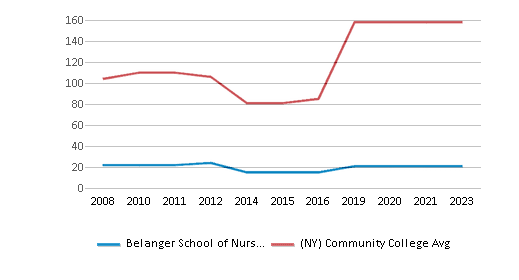
Student Body
The student population of Belanger School of Nursing has grown by 8% over five years.
The student:teacher ratio of 7:1 has stayed the same over five years.
The Belanger School of Nursing diversity score of 0.86 is more than the state average of 0.76. The school's diversity has grown by 91% over five years.
Total Enrollment
142 students
746 students
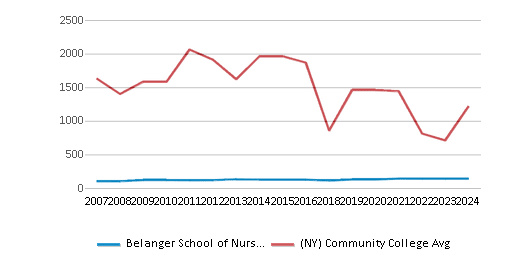
Student : Teacher Ratio
7:1
13:1
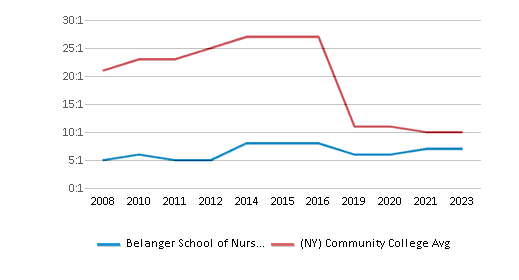
# Full-Time Students
37 students
519 students
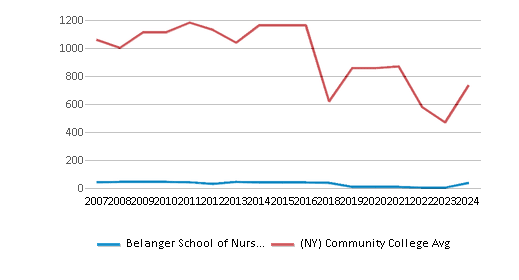
# Part-Time Students
105 students
514 students
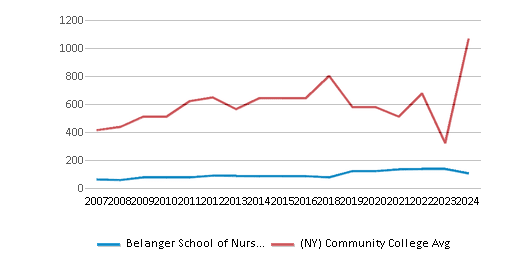
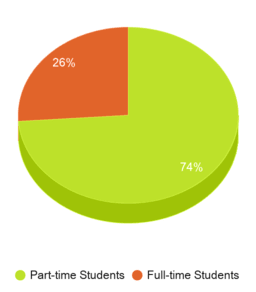
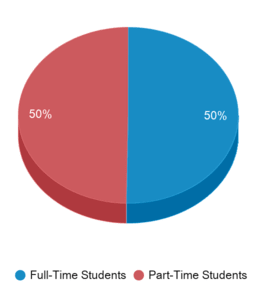
# Enrollment Undergraduate
142 students
357 students
# Full-Time Undergraduate Students
37 students
502 students
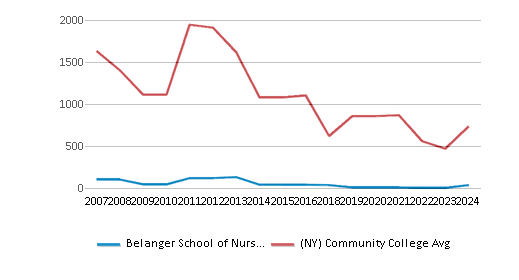
# Full-Time Graduate Students
n/a
44 students
# Part-Time Undergraduate Students
105 students
528 students
# Part-Time Graduate Students
n/a
41 students
Total Dormitory Capacity
n/a
382 students
% American Indian/Alaskan
3%
n/a
% Asian
6%
8%
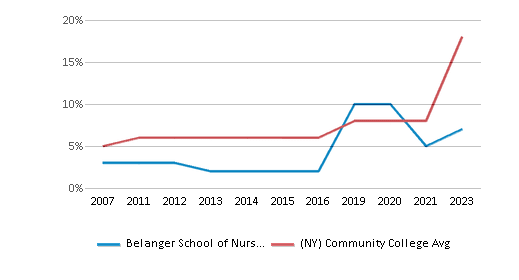
% Hispanic
1%
23%
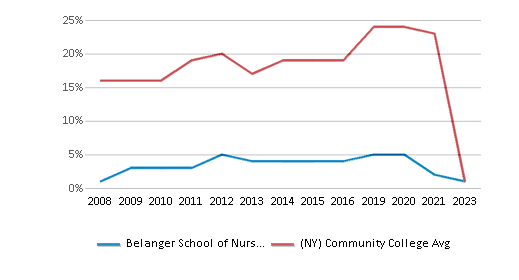
% Black
6%
18%
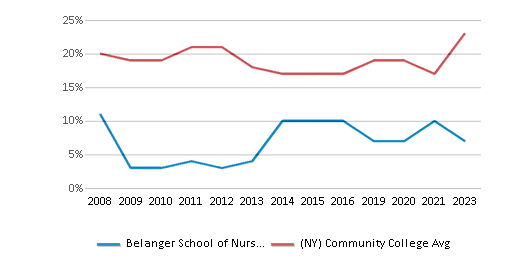
% White
15%
38%
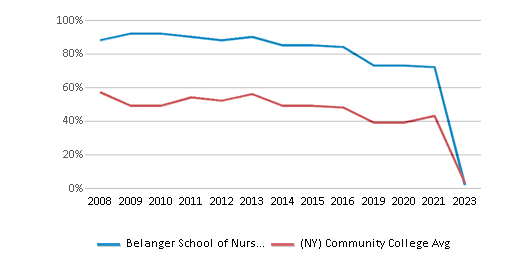
% Hawaiian
33%
2%
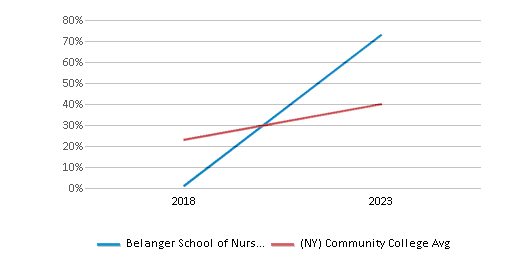
% Two or more races
3%
3%
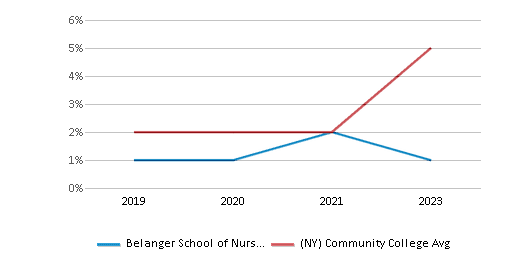
% Non Resident races
n/a
3%
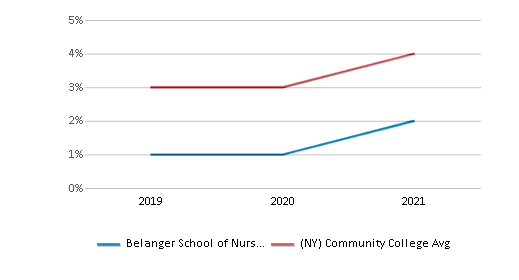
% Unknown races
32%
5%
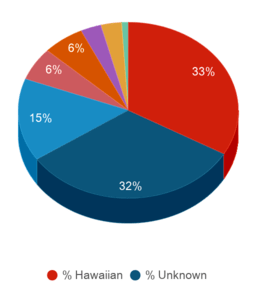
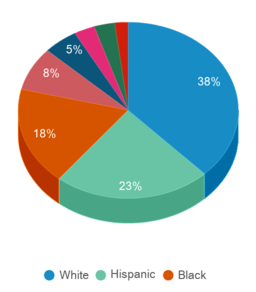
Diversity Score
0.86
0.76
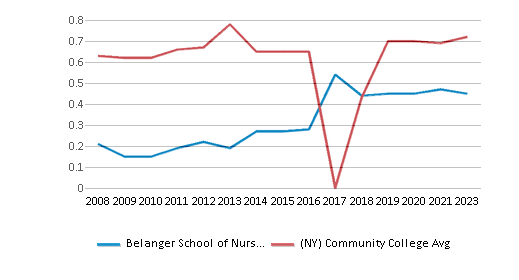
College Completion Rate (Students who graduate in less than 4 years)
1%
0.3518%
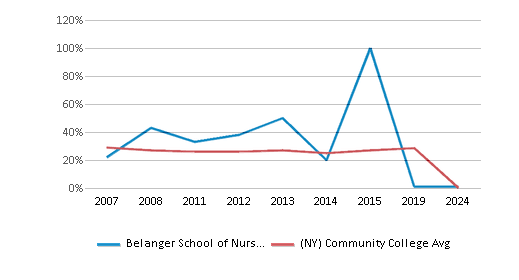
College Completion Rate (Students who graduate in 4 years or more than 4 years)
n/a
0.3957%
Average Graduate Earnings (10 Years) (Year 2013)
$59,700
$35,200
Tuition and Acceptance Rate
The private state tuition of $9,261 is less than the state average of $16,426. The private state tuition has declined by 19% over four years.
Private State Tuition Fees
$9,261
$16,426
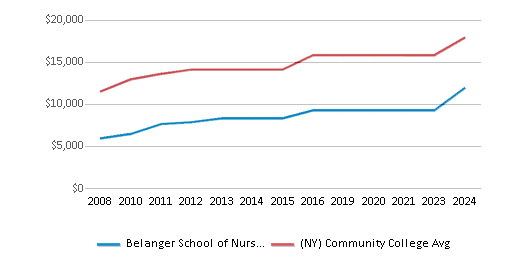
% Students Receiving Some Financial Aid
100%
88%
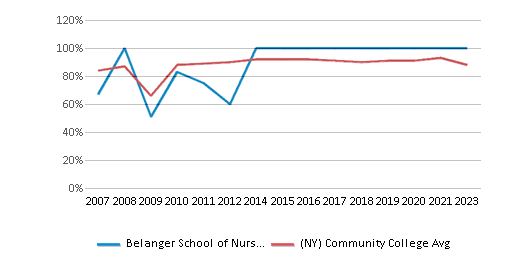
Median Debt for Graduates
$15,250
$13,841
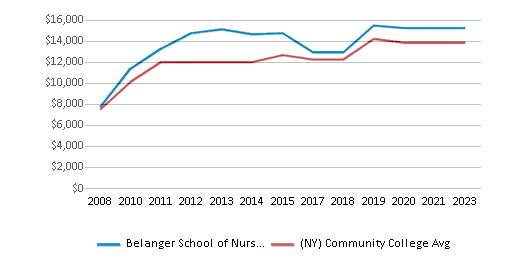
Median Debt for Dropouts
$4,750
$5,500
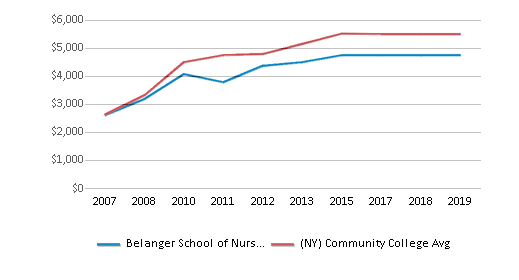
Acceptance Rate
25%
74%
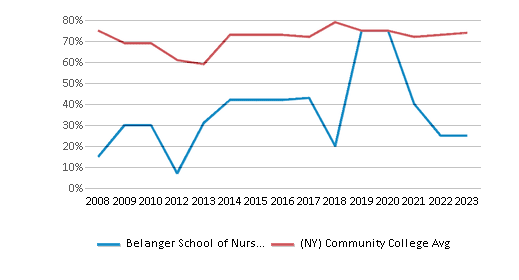
SAT Reading
n/a
475
SAT Math
n/a
505
SAT Writing
n/a
485
ACT Composite
n/a
20
ACT English
n/a
18
ACT Math
n/a
20
Source: 2024 (or latest year available) Integrated Postsecondary Education Data System (IPEDS)
School Notes
- Ellis Hospital opened its doors on Christmas Day, 1885. Then called the Schenectady Free Dispensary, it had five beds and was housed in a two-story building at 408 Union Street. The hospital moved to its present location in 1906. Today the twelve-acre hospital campus, housing many medical specialties, has 269 acute care beds and 82 nursing home beds. The curriculum consists of 42 credits in nursing and 30 college credits spanning four semesters and one summer session. The primary focus of instruction is the care of the hospitalized patient with an emphasis on clinical practice. To address the increased health care provided in community-based settings, the Ellis Hospital School of Nursing curriculum has expanded learning experiences in public health, primary care and community services. The faculty of the Ellis Hospital School of Nursing believes education is a dynamic process wherein students acquire knowledge, attitudes and skills that enable them to better understand self, fellow human beings and responsibility to society. Learning is dependent upon the students' ability, readiness to learn and active participation in the process. The Ellis Hospital School of Nursing offers an evening/weekend alternative for completion of the associate degree curriculum. The prerequisites for admission to the evening/weekend program are the same as for the traditional day program with the addition of Anatomy and Physiology I, Anatomy and Physiology II, and Microbiology. The evening/weekend program will take approximately 20 more weeks to complete than the traditional day program.
Frequently Asked Questions
How much does Belanger School of Nursing cost?
Belanger School of Nursing's private state tuition is approximately $9,261.
What is the acceptance rate of Belanger School of Nursing?
The acceptance rate of Belanger School of Nursing is 25%, which is lower than the state average of 74%. Belanger School of Nursing's acceptance rate is ranked among the top community colleges in New York with low acceptance rates.
What is Belanger School of Nursing's ranking?
Belanger School of Nursing ranks among the top 20% of community college in New York for: Lowest acceptance rates, Diversity in US community colleges, Percent of students receiving financial aid and Highest completion rates.
Recent Articles

Obtaining Your Bachelor's Degree at a Community College
Explore the evolving landscape of community colleges offering bachelor's degrees, addressing affordability, accessibility, and workforce needs.

A to Z of Community College Certificates and Courses
From business and healthcare to technology and skilled trades, the article showcases the breadth of options available to students seeking to enhance their knowledge, develop new skills, or pursue career advancement.

What is a Community College?
This comprehensive guide explains what a community college is, its history, and its role in higher education. It covers the types of programs offered, differences from four-year colleges, benefits of attending, and important considerations for prospective students, providing valuable insights for those exploring educational options.

